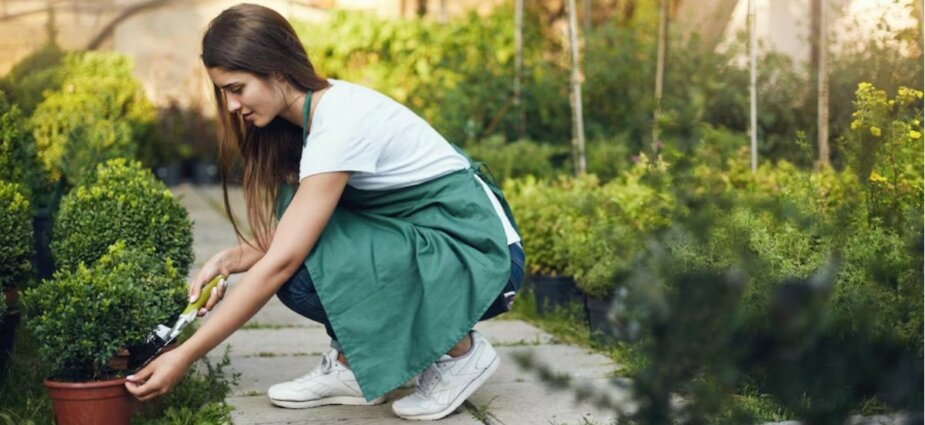Moving to a new home is undoubtedly challenging. After getting help from professional removalists like Optimove Removals and unpacking your belongings in your new home, there’s still lots to do before you get truly settled in. You need to look around and get a feel of the new place to see what other items or projects you can take up to make it your own.
One of the best ways to do this is by starting a garden. Gardening enables you to bring a bit of nature and life into your home and can also help alleviate the stress that comes with moving into a new space.
If you’re ready to give gardening and build your dream outdoor space a go, here are some tips to get you started:
Design Your Layout
Before diving into the weeds (literally!), take some time to plan out what you envision for your garden design. Take note of available sunlight, soil conditions, and any current vegetation that might inform your choices. Having a clear plan from the beginning will make the entire process much smoother in the long run.
What Features Do You Want?
Do you want a simple garden or a concept one with water features and outdoor entertainment space? You can ask for professional help from landscapers if you’re overwhelmed, and an interior decorator can offer some insights. It is essential to establish which features you want to add to your garden and how much space you’re willing to dedicate to it.
Choose Appropriate Plants
After establishing the layout for your garden, consider which plants would work best on their unique characteristics. Factors such as climate and soil type should be considered when deciding what plants can thrive in that environment; research natives if possible, as they tend to adapt better to their local conditions than non-natives. If you’re unsure about something, seek advice from professionals or dedicated gardening forums – there is always someone who knows more than you!
Necessary Tools & Equipment
Creating a thriving garden means accessing the right tools and equipment necessary for planting, weeding, pruning, raking etc. Simple hand tools such as spades and trowels are essential. Still, there are also more sophisticated items depending on how ambitious you want to get – hedge trimmers, electric hedgers or even robotic lawnmowers! Having these basics ready before starting makes tasks more manageable, so do your homework beforehand on what works best for each job.
Accessorize and Enjoy
Now that you’ve set your garden up, it’s time to accessorize and make it yours. Add furniture or decorations such as lighting fixtures, art pieces or bird feeders to create a relaxing atmosphere for you and your family. You can even involve the kids in this part of the process by having them help out with the decoration.
Regular Maintenance
While gardens may require less attention after initial setup than other types of property maintenance, regular upkeep is still very important for keeping it in good health all year round! Things like watering frequently but not excessively, mulching topsoil to keep moisture locked in and weeding regularly will all help prevent pests from taking over while also giving life back into existing plantings – use compost whenever possible instead of chemical fertilizers too, as this contains natural beneficial bacteria that won’t harm helpful rooting systems below ground level!
Grow With Your Garden
A garden is a living, growing thing, and it’s important to remember that as you move through its life cycle. Don’t be afraid to experiment with new plants, revamp sections or take some risks – as long as you stay mindful of the necessary maintenance requirements. There is no reason why your garden won’t flourish. Over time, you can venture into more complex projects such as hydroponic systems or gardening indoors; the possibilities are endless, and the more you learn, the better your garden will become!
Welcome Some Animal Friends
You can introduce birds, butterflies, koi fish, or turtles to your garden, making it a vibrant oasis. It’s essential to research the species of animals you want to introduce before doing so, as some require specific requirements that may be difficult to maintain in your garden. Similarly, be mindful of any local or state laws when introducing new species into the environment; for example, certain areas have strictly enforced laws to protect native plants and animals.
Consider an Edible Garden
As your confidence grows in gardening, consider transforming a section of your garden into an edible one. This requires extra planning and care, but it is well worth the effort to produce fresh fruits, vegetables, herbs or other edibles that are grown in your backyard. Among the easiest to grow are tomatoes, carrots, and lettuces, which are fairly low maintenance and can provide excellent results.
Other examples of year-round produce include spinach, garlic, and onions – incredibly versatile ingredients that can be used in many dishes.
Some Tips and Tricks for Gardening at Home
Newbies need not be intimidated! Gardeners of all levels can reap the rewards from taking a few simple steps.
- Start small and build up from there.
- Research before buying equipment or plants will save you time and money in the long run.
- Make sure to water plants regularly but don’t overdo it – too much water can kill them!
- Keep mulch handy for moisture retention, weed control, and composting.
- Try to introduce beneficial bugs such as ladybugs or lacewings to help keep pests away naturally.
- Plant companion plants together – some vegetables, herbs, and flowers work better when placed next to each other in the garden.
- Don’t forget to invest in quality tools and accessories to help you with your gardening tasks.
- Finally, don’t be afraid to ask for advice from friends and family who have been gardening longer than you – it’s a great way to gain insight and learn valuable tips!
Conclusion
Making your new home your own involves adding personal touches to every aspect. With a little effort and patience, you can transform your garden into an oasis of beauty and tranquillity that is fit to host friends and family. As you learn more and gain experience, you’ll find the process of gardening enjoyable and rewarding.










